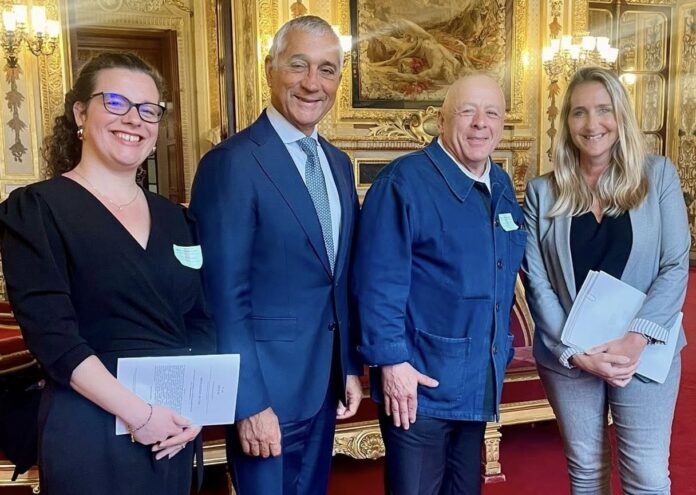The Senator of Alpes-Maritimes questions the new Minister of SMEs, Serge Papin about the critical situation of restaurateurs and culinary artisans. She calls for better recognition of “homemade,” stricter regulation of designations, and concrete support in facing the sector’s economic difficulties.
Alexandra Borchio Fontimp, senator of Alpes-Maritimes and president of Côte d’Azur France Tourism, addressed a written question to Serge Papin, the Minister of Small and Medium-sized Enterprises, Trade, Crafts, Tourism, and Purchasing Power, who was elected only three weeks ago. She expresses her concern for restaurant artisans, whose working conditions are deteriorating.
For several years, the parliamentarian has been defending French gastronomy and local expertise. She recalls that these professions are at the heart of the country’s cultural identity. “Homemade cannot be reduced to a simple label: it embodies respect for the product, the transmission of expertise, and fidelity to the artisanal gesture,” she highlights.
Alongside chef Thierry Marx, president of the Union of Hospitality Professions and Industries (UMIH), Alexandra Borchio Fontimp advocates for more stringent regulation of the “homemade” designation and the term “restaurant.” She believes that the lack of real control leads to confusion between artisanal establishments and those that merely reheat prepared dishes. “A shop fitted with microwaves selling prepared meals cannot claim the name “restaurant,” she insists. According to her, this drift harms the sector’s reputation and contributes to a “degastronomization” of France.
Inadequate Regulation
The decree of July 11, 2014, which regulates the use of the “homemade” mention, was intended to allow consumers to identify establishments that genuinely cook on-site from raw products. But its application remains, according to the senator, “uneven and insufficiently regulated.”
The absence of a clearly designated authority to ensure controls fosters confusion. Restaurateurs who work in an artisanal manner struggle to distinguish themselves from those who rely on industrial products. Consumers, in turn, lack reliable information.
For Alexandra Borchio Fontimp, this situation weakens an entire sector of gastronomy. She considers it necessary to “guarantee increased recognition and effective protection to establishments committed to this quality approach.”
A Sector Weakened by the Economic Climate
Culinary artisans must also contend with an economically strained context. The continuous rise in energy and raw material costs, combined with a labor shortage and persistent administrative pressure, undermines small structures.
The figures mentioned by the senator are telling: the summer attendance drop is said to have reached between 15 and 30% depending on the regions. These losses heavily affect independent, often family-run businesses, which represent an essential economic fabric in the territories.
“Thus, invaluable expertise, carriers of cultural identity and social bonds, risk disappearing,” warns Alexandra Borchio Fontimp. She calls for concrete measures to assist restaurateurs in implementing the decree and supporting their activity.
Towards Legislative Reflection
In her written question, the senator asks the government about the actions planned to enhance the scope of the text and improve its application procedures. She also wants to know whether a broader legislative reflection could be initiated to “sustainably promote French artisanal expertise.”
The elected representative from the Côte d’Azur thus engages in a broader battle: preserving culinary heritage and respecting the work of artisans. Behind the question of “homemade,” the transmission of skills, the quality of products, and the authenticity of French cuisine are at stake.


